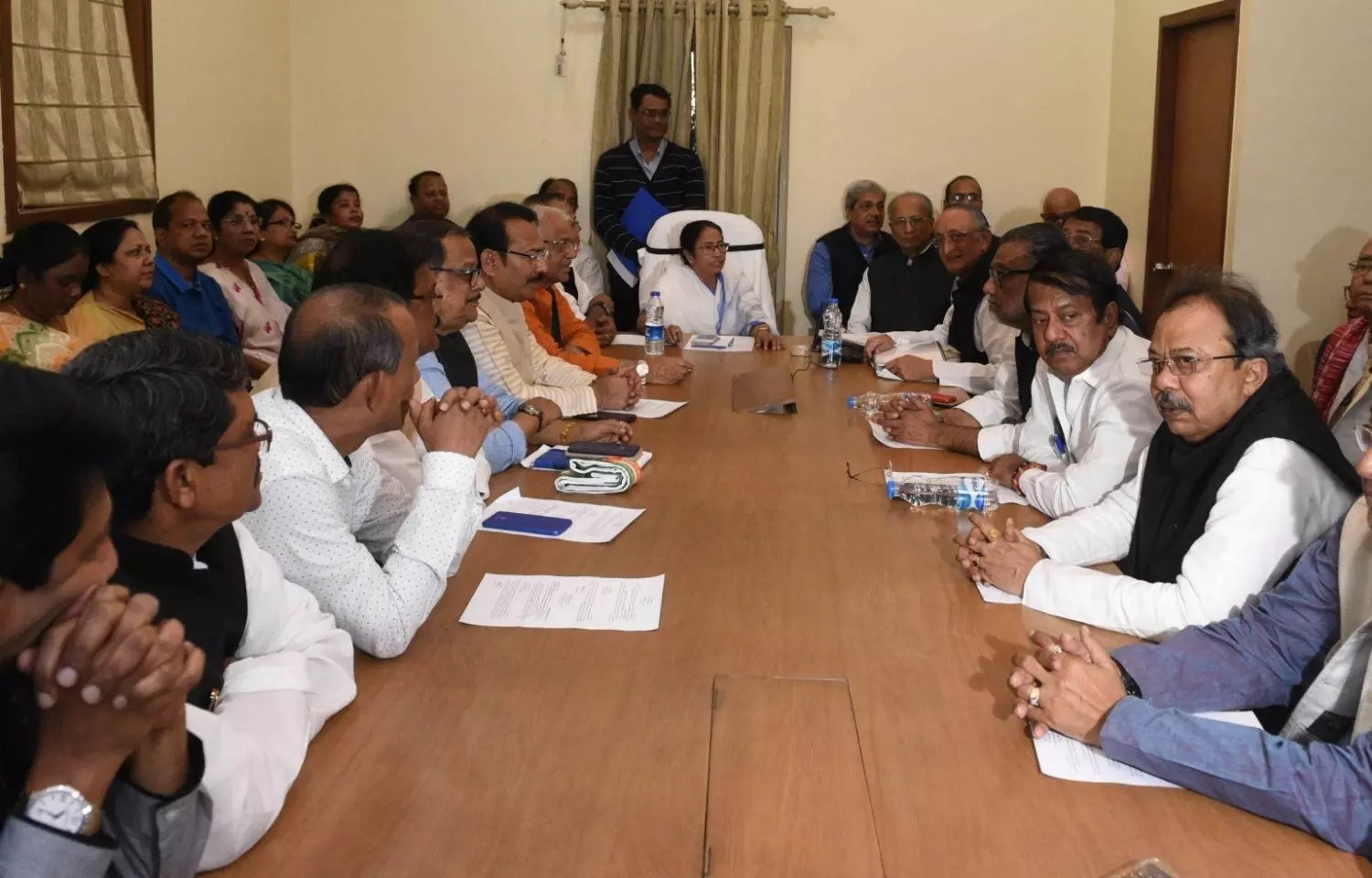
Bengal Cabinet okays State Edu Policy
MP | 7 Aug 2023 | Kolkata: The Bengal Cabinet on Monday approved the State Education Policy (SEP) making it clear that it is not abiding with the National Education Policy (NEP) 2020 in toto, except for the introduction of the four-year degree course programme.
The state will retain the existing 4+4+2+2 structure with the integration of pre-primary and Anganwadi stage in the school structure.
The NEP had recommended changing the school structure to 5+3+3+4 system with classes IX to XII seen as one continuum with options for students to pick their subjects. However, the state Education policy, as per recommendations of the 10-member committee formed for framing the SEP will have both the West Bengal Board of Secondary Education for Madhyamik and West Bengal Council of Higher Secondary Education for Higher Secondary.
The state does not want to burden the students with choosing the career path from the class IX level itself. Bengal will also not implement the three-language formula at the primary level keeping in mind the developmental needs and abilities of students at such an age. Efforts will be made to teach Bengali as a subject having various language combinations other than Bengali from class I onwards.
A few days back, state Education minister Bratya Basu had said in the state Assembly that the four-year degree course programme as per NEP 2020 is being implemented.
“If we had not done so, then around 7 lakh students would not have been able to compete at the national level and the tendency of moving to other states would have increased. The students who hail from poor economic backgrounds would have fallen into serious trouble.
So, considering the interest of the students at large, Chief Minister Mamata Banerjee has directed us to go with the four-year programme,” Basu had said.
The state Education Department has agreed with the suggestion of the committee to introduce the semester system in a phased manner over the next three years, starting from class VIII. The suggestion of evaluating the existing syllabus and curriculum has also been agreed by the state.
The Bengal government has further accepted the recommendation for grading and ranking of schools under the aegis of the Higher Secondary Council as it will bring healthy competition among the schools.
The recommendation of integrating vocational courses with the mainstream teaching-learning process under CBCS (choice-based credit system) has also been agreed as it will enhance employability.
The 10-member committee has Prof Gayatri Chakravorty Spivak, a professor at Columbia University, USA, Prof Sugata Bose, a professor at Harvard University, Prof Suranjan Das, a professor in the USA, Vice-Chancellor of Jadavpur University, Prof Anupam Basu, Director of National Institute of Technology, Durgapur, Prof Saikat Maitra, former Vice-Chancellor at the Maulana Abul Kalam Azad University of Technology, Bengal, Prof Nrishinga Prasad Bhaduri, educationist, Prof Aveek Majumder, former chairman, Syllabus Committee as Member Coordinator, Prof Dhrubajyoti Chattopadhyay, Vice-Chancellor of Sister Nivedita University, Dr Chiranjib Bhattacharyya, chairman, West Bengal Council of Higher Secondary Education and Dr Ramanuj Ganguly, chairman, West Bengal Board of Secondary Education.
https://www.millenniumpost.in/bengal/bengal-cabinet-okays-state-edu-policy-528500


0 Response to "Bengal Cabinet okays State Edu Policy"
Post a Comment
Disclaimer Note:
The views expressed in the articles published here are solely those of the author and do not necessarily reflect the official policy, position, or perspective of Kalimpong News or KalimNews. Kalimpong News and KalimNews disclaim all liability for the published or posted articles, news, and information and assume no responsibility for the accuracy or validity of the content.
Kalimpong News is a non-profit online news platform managed by KalimNews and operated under the Kalimpong Press Club.
Comment Policy:
We encourage respectful and constructive discussions. Please ensure decency while commenting and register with your email ID to participate.
Note: only a member of this blog may post a comment.